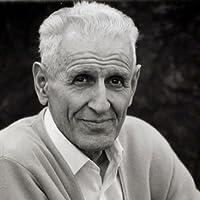
Jack Kevorkian
O Autorze
Jack Kevorkian was a pathologist and euthanasia advocate best known for his controversial role in assisting terminally ill patients to end their own lives. He gained national attention in the 1990s for his invention of the "Mercitron," a machine that allowed patients to self-administer lethal doses of medication. Kevorkian's actions sparked widespread debate about the ethics of assisted suicide and the rights of patients to choose their own end-of-life care. His practice, which he referred to as 'physician-assisted suicide,' led to numerous legal battles and a significant impact on the conversation surrounding euthanasia in the United States.
Throughout his life, Kevorkian authored several books detailing his views on death, dignity, and the medical ethics surrounding end-of-life decisions. He became a polarizing figure, admired by some for advocating for patients' rights and criticized by others who saw his actions as promoting a culture of death. Despite the controversies, Kevorkian remained steadfast in his beliefs, and his legacy continues to influence discussions on assisted suicide and the role of healthcare providers in end-of-life care.